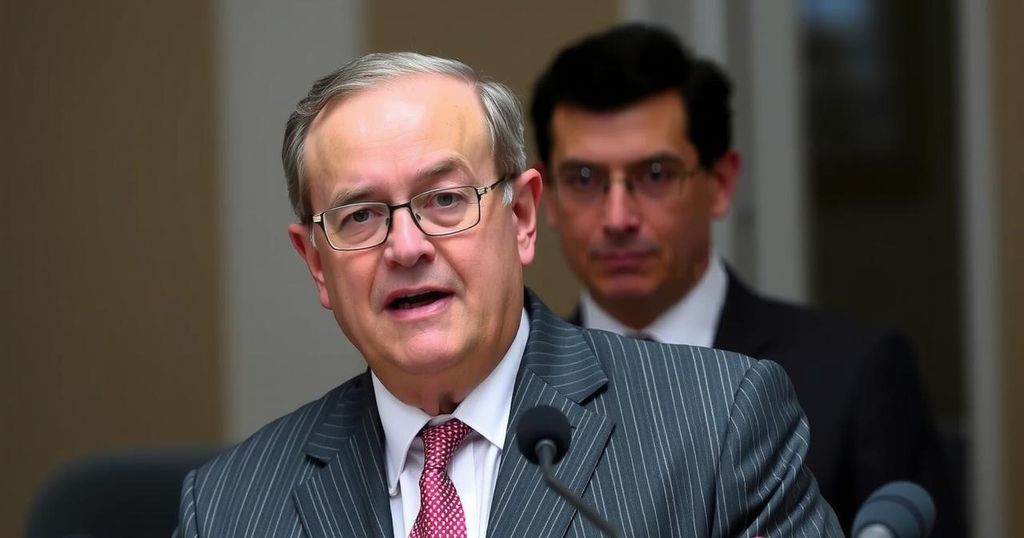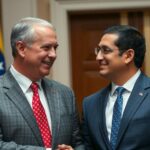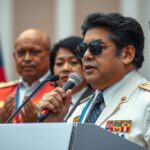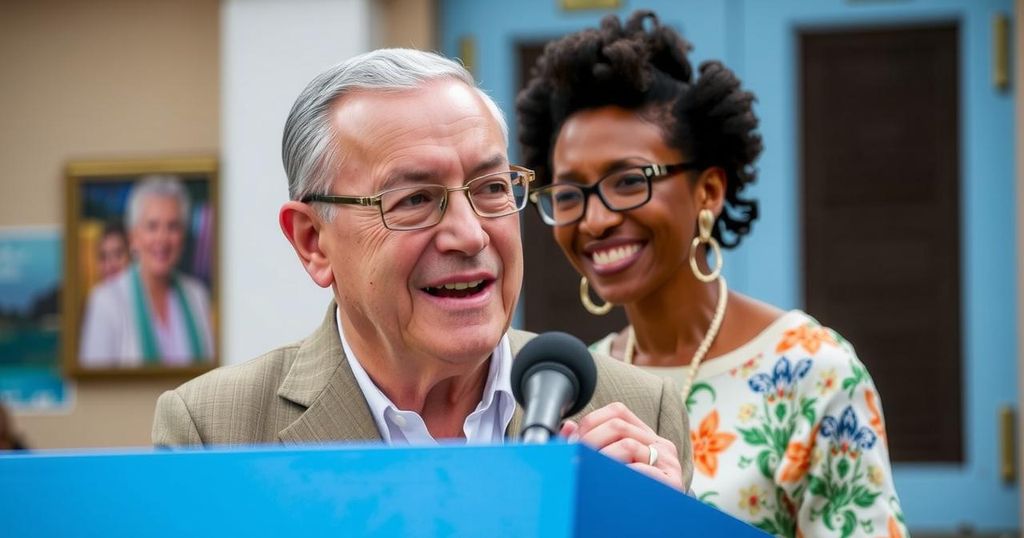Lebanon Elects New President Joseph Aoun Amid Saudi Diplomatic Efforts
Lebanon elected Joseph Aoun as its new president following a Saudi-led diplomatic push, ending a two-year political deadlock. The election, marked by overwhelming parliamentary support, raises significant questions about external influences in Lebanese politics and the implications of Hezbollah’s role under a new administration poised to confront the group’s military capabilities.
On Thursday, Lebanon achieved a significant political milestone with the election of its new president, Joseph Aoun, following a crucial intervention by Saudi Arabia. Just before the scheduled parliamentary vote, the political landscape appeared fragmented, with more than six presidential candidates still vying for power. The situation seemed destined for another unsuccessful election, marking the 13th attempt over two years. However, the arrival of Saudi envoy Prince Yazid bin Farhan set the stage for a last-minute consensus.
After a series of strategic meetings with key political factions, the Saudi delegation effectively streamlined support for Aoun, resulting in an overwhelming 99 votes in his favor from the 128-member parliament. Initially deemed unconstitutional by some due to his military background, Aoun transitioned from military attire to formal wear before taking his oath. In a pivotal speech, he expressed his commitment to ushering in a new era for Lebanon while emphasizing the state’s control over arms, particularly concerning Hezbollah’s long-standing militant presence.
The election was met with public jubilation, signifying the end of a prolonged presidential vacuum and a temporary halt to elite-level stalemate. Yet, this development prompted questions about Saudi Arabia’s renewed interest in Lebanese politics after years of perceived disengagement, particularly in the face of Iranian influence through Hezbollah. Notably, Hezbollah and its ally, the Amal party, played a strategic role by initially refraining from voting in the first round, only to support Aoun afterward, indicating a complex political maneuver.
Saudi Arabia’s diplomatic efforts coincided with Western influence, involving discussions led by officials from France and the United States to lend credence to Aoun’s candidacy. This illustrates a concerted international push for stabilization in Lebanon, although sentiments within the parliament reveal concerns about sovereignty under foreign influence.
Aoun’s presidency represents a stark shift in power dynamics compared to his predecessor, Michel Aoun, during whose term Hezbollah’s influence surged. Hezbollah’s muted acceptance of Aoun’s election raises questions about its weakened state following recent military setbacks and internal challenges. Despite strategic challenges, Hezbollah still possesses substantial military capabilities, indicating that negotiations regarding disarmament will be complex.
The new president must navigate Lebanon’s treacherous political landscape while striving for civil unity and avoiding potential conflicts among various factions. Furthermore, Aoun’s administration faces immediate challenges, including addressing Israeli military presence in Lebanon, with his administration pledging to tackle this issue through state-driven efforts. This election offers a glimmer of hope for renewed governance and stability in Lebanon, while the political landscape remains fraught with complexities and the need for strategic negotiations.
The election of a new president is a critical development in Lebanon, where a protracted political stalemate had persisted. Lebanon’s political system, characterized by confessionalism, requires a consensus among various sectarian groups to elect a president. This fragmentation often complicates governance and has historically led to power vacuums. Saudi Arabia’s sudden re-engagement in Lebanon is noteworthy given its previous strategy of distancing itself due to perceived Iranian dominance through Hezbollah, whose influence has been a central issue in Lebanese politics.
In conclusion, the election of Joseph Aoun signifies a pivotal moment for Lebanon amidst its complex sectarian politics. Supported by significant diplomatic efforts from Saudi Arabia and Western allies, Aoun’s ascension offers potential pathways for renewed governance and political stability. However, the overarching challenges concerning Hezbollah’s disarmament and national sovereignty remain critical issues that will require careful navigation in the coming months.
Original Source: www.cnn.com








Post Comment